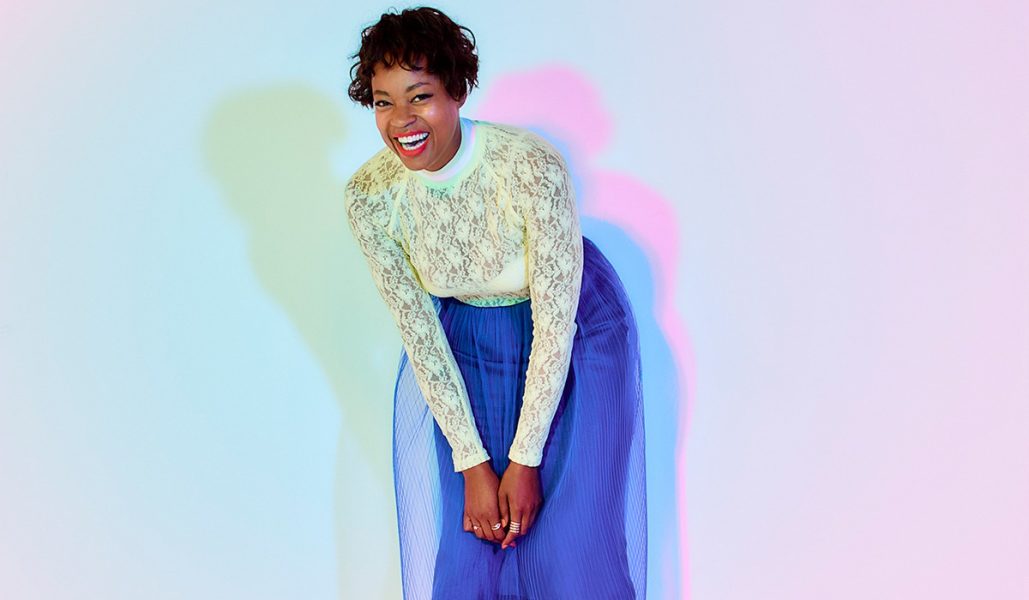Diversify The Stage was founded by Noelle Scaggs, co-lead vocalist of alt-pop band Fitz And The Tantrums, in the spring of 2020, with a focus on transforming the concert, events, and touring industries to increase diverse representation. The organisation counts on the support of industry professionals and artists to build a culture of accountability that establishes inclusive hiring practices and greater access to equitable opportunities for Black, Indigenous and People of Colour (BIPOC); Lesbian, Gay, Bisexual, Transgender and Queer (LGBTQ); Female-identifying and Gender Non-conforming individuals.
With over two decades of experience as a touring musician and a woman of colour in the alternative space, TPi sat down – screen to screen – with Scaggs to discover more about the initiative. “There weren’t many folks who looked like me on tour,” Scaggs said, speaking from her LA base. “I recognised over my years of touring that I have primarily been the only woman of colour in a space which is predominantly male in leadership positions. It wasn’t until I started having conversations about the lack of diversity that I began to realise that I hadn’t had any conversations with tour managers that were also people of colour.”
Following a wave of momentum for widespread cultural and political change in 2020, Scaggs established Diversify The Stage. “I wanted to open up a conversation in the beginning with people taking to the streets and identify that the struggles of black communities around the world were troublesome,” she explained. “There was a lot of dialogue about the lack of representation in the music industry, however, there were no proactive solutions to the subject of diversity in the touring industry or challenging the narrow referral process of hiring touring crew.”
To address this imbalance, Diversify The Stage joined forces with NeverFamous.com to create a technical solution to hiring qualified touring staff. “I was introduced to [Nine Inch Nails Tour Manager and Founder of NeverFamous.com] Jerome Crookes and came to find out that he had created an employment portal as an answer to this issue. His focus is connecting qualified staff with recruiters with a focus on diversity, equality and inclusion,” Scaggs reported. “Given our experience, we recognised that the pool was shallow, and it was time to fill it with new faces and introduce people to careers in this often closed-off space.”
Scaggs believes that setting a precedent and laying the groundwork for inclusion and diversity is key to getting the message to the forefront of people’s minds, making it a non-thought, when it comes to hiring a diverse workforce. “We want to establish more inclusive hiring practices and greater access to equitable opportunities with an emphasis on inclusion for individuals across all stages,” she said. “It should be a natural practice going forward in live music, events, and touring industries where there are barriers for women and people of colour.”
Diversify The Stage has gained support from the biggest players in the industry, including Live Nation, Live Nation Urban, WME, UTA Music, Azoff Company, Elektra and Atlantic Records, The Black Music Action Coalition (BMAC), National Independent Venue Association (NIVA), The Event Safety Alliance, Roadies Of Color United, lighting collective EVEN Network, as well as stage suppliers and designers Clair Global and TAIT.
View this post on Instagram
Scaggs believes unified communication will help create an inclusive space and demand accountability. “I’m hoping that this movement ties in with other causes around the world and that there is some semblance of standard practice across the board,” she said, unerringly. “It’s now a matter of coordinating and working together so the messaging doesn’t just stand on social media black boxes and talks about #BlackLivesMatter and all the inequities within BIPOC communities despite not showing in our business model.”
In less than a year, Diversify The Stage has set forth long-term change by partnering with the Music Forward Foundation to create educational and mentorship programmes followed by paid internship/apprenticeship placements. “Our youth programme has been very gratifying for a lot of folks,” Scaggs enthused. “I’ve realised that there are a lot of experienced professionals who are passionate about helping young people get a foot in the door.”
A mentorship scheme is a key part of Diversify The Stage’s youth programming. “Our programme features masterclass discussion with industry leaders, providing industry newcomers an opportunity to ask questions and plant the seed in their minds about a career in a sector which they may not know a huge deal about,” Scaggs said, explaining that these discussions with industry leaders often lead to mentorship – an important part of prospective employees’ career trajectory.
“I wouldn’t have got to where I am now without that infrastructure behind me. As a part of DTS, all programme participants have access to mentors, network and gain connections in the industry,” Scaggs said. “Once the year-long programme is over, all graduates remain in the DTS database and have access to employment opportunities.”
Diversify The Stage actively encourages employers to pay apprentices to develop their craft. “We want young people to know their value and learn how to negotiate their contracts; these are the basic tools you need to be a 1099 employee,” Scaggs underlined. “We want our partners to understand that they can help shape the next generation, especially at a time when everyone is unclear about when they’re able to get back to work. However, we can’t do this work without investment and we’re looking to supporters to develop a scholarship and grants fund for cohorts in the programme to assist with financial aid.”
At the time of writing, Diversity The Stage is collaborating with grassroots partners and Events Vocational Education Network (EVEN) – a collective of lighting designers formed to create a more diverse and inclusive live events industry through outreach, training, mentorship, networking and paid internship placement. “We hope to develop a roadmap for these opportunities, educational institutions thinking of implementing this into their curriculum plan to build a pipeline into education that can turn into an equitable opportunity,” Scaggs commented.
Taking it “one foot in front of the other”, Scaggs and the team are excited to be back on the road and celebrate being part of a diverse music community. “What I hope continues is this consistent dialogue that we’ve had over the past year regarding diversity and inclusivity in the sector, and that it simply does not disappear when everyone is back to business and there is a definite intention to make sure there’s action taken.”
This article originally appeared in issue #261 of TPi, which you can read here.
Photos: Diversify The Stage


